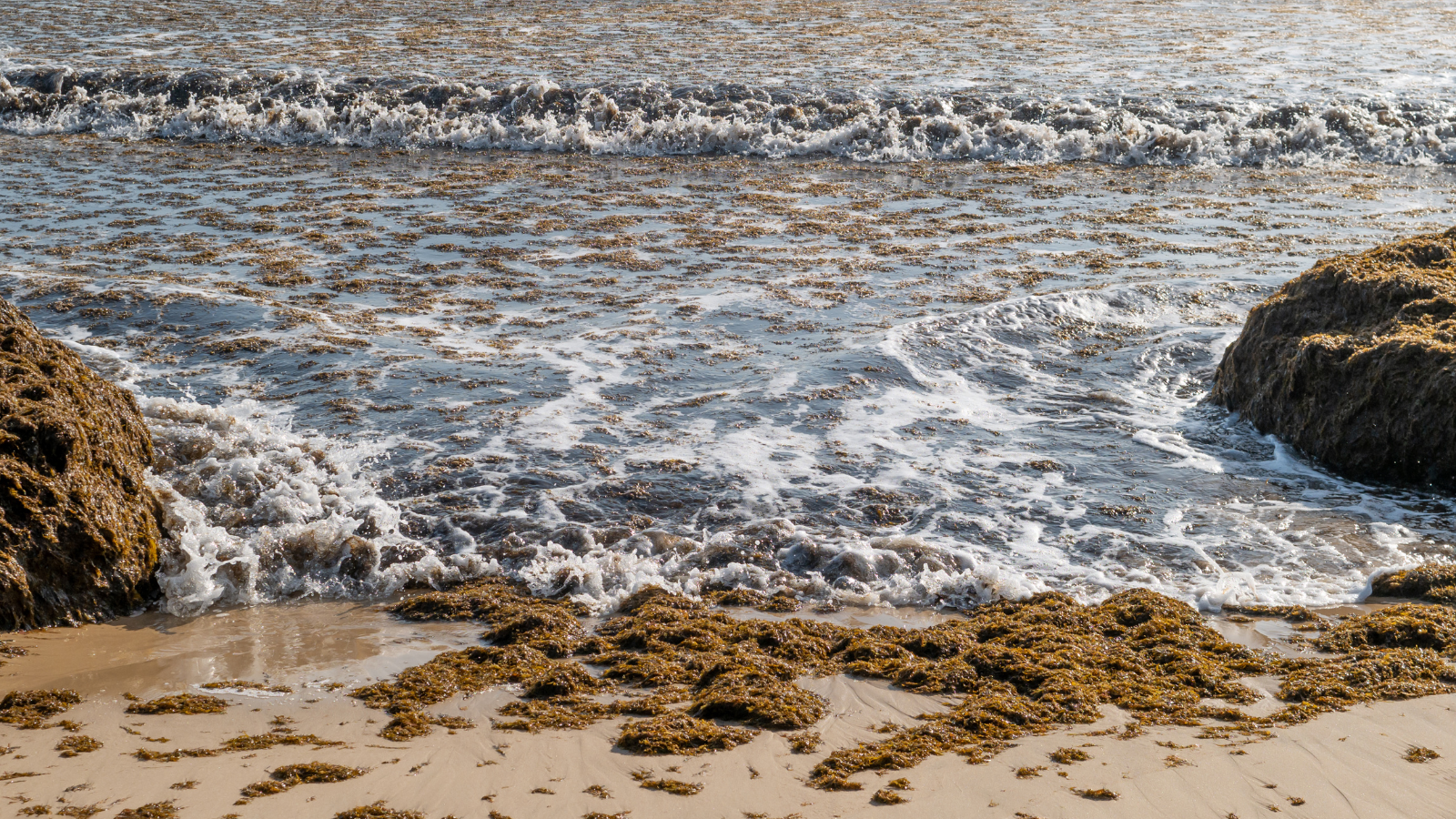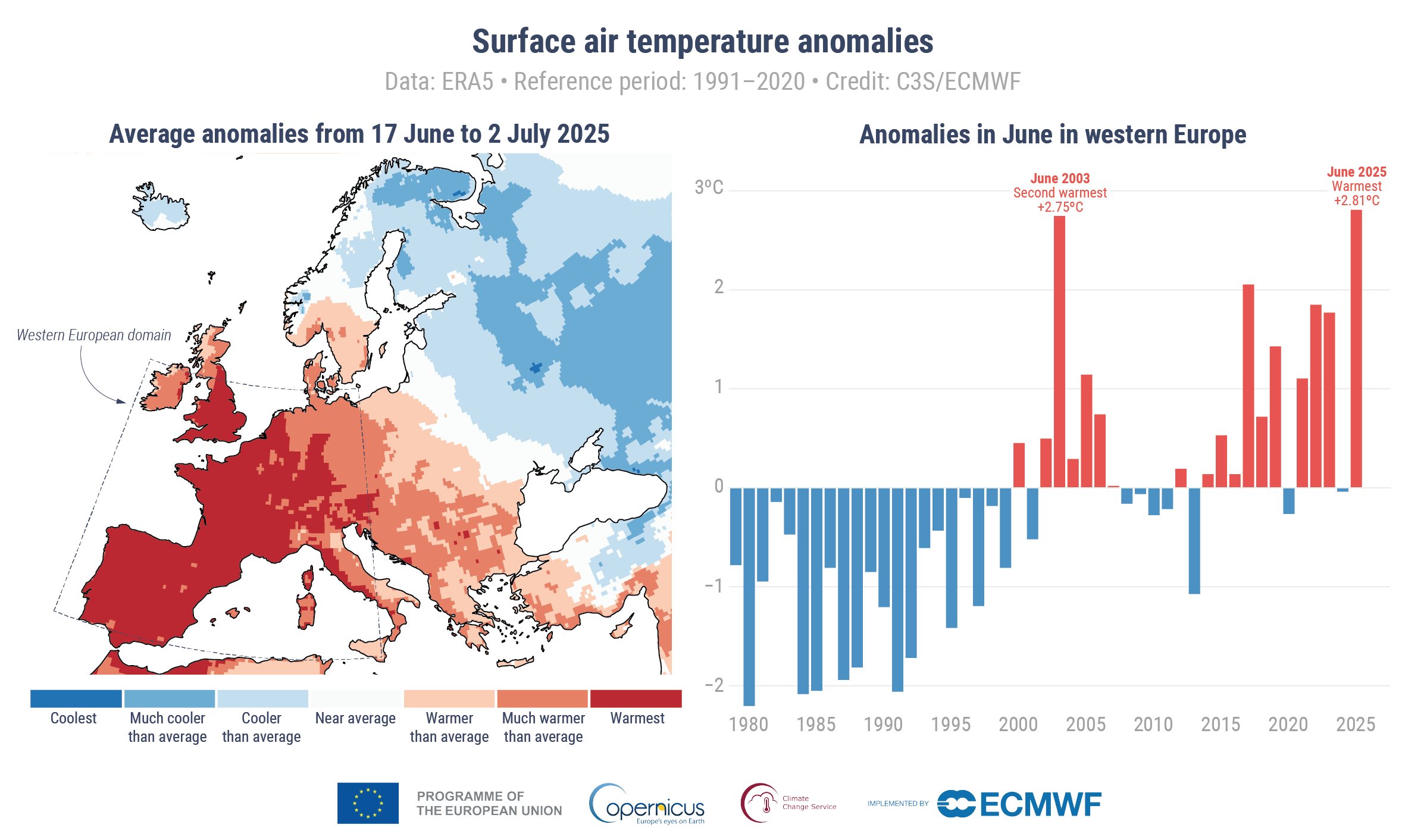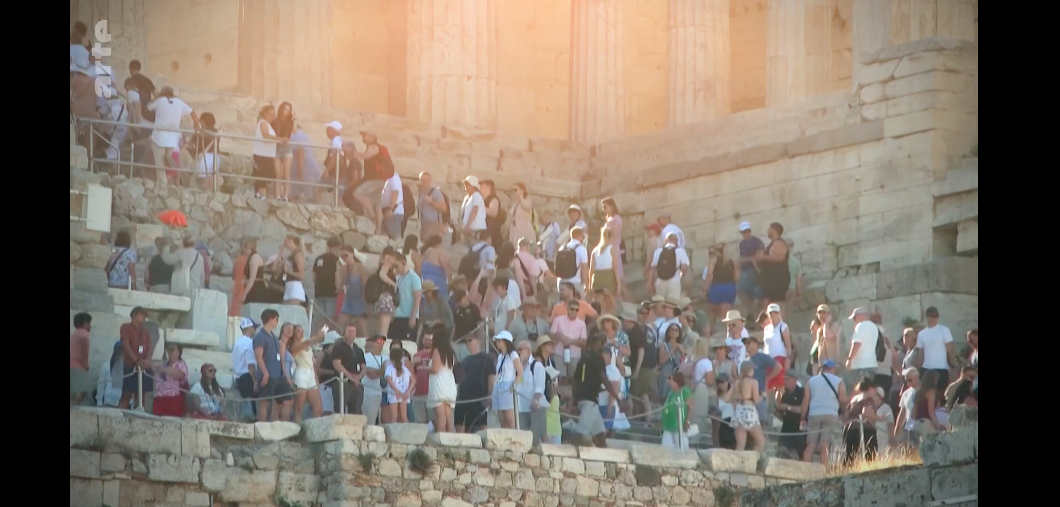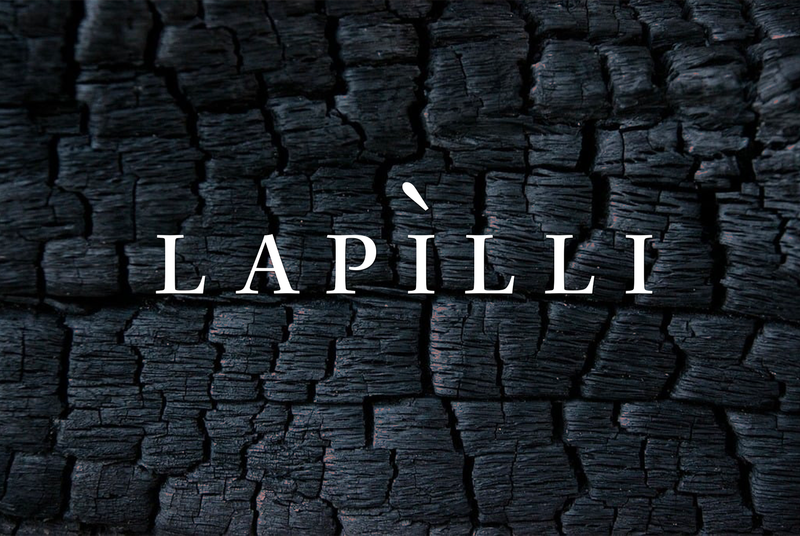In this edition of Lapilli, you’ll read about an exotic algae proliferating in the Western Mediterranean that you might find on your next vacation. But not only that. As wildfires scorch Mediterranean coasts, we take a moment to reflect on how the concept of the “ideal vacation” is shifting. Then, we highlight how charcoal for shisha is becoming an important commodity for rural areas hit by economic instability in Syria. We also touch on brown bears in the Balkans, olive thefts in Greece and new cruise routes emerging in the Adriatic. Enjoy the read!
Also, a quick notice: We will soon publish a new call for applications for our environmental reporting fellowship. Please visit our website for more information. On a similar note, the AMWAJ Alliance has also recently launched a new call for their fellowship program. In both cases, the deadline to apply is August 31.

A burning Mediterranean. We’re in the peak of wildfire season, with alarming reports coming in from multiple countries. In early July, a massive fire broke out just outside Marseille, France’s second-largest city, temporarily shutting down the airport for a day.
In Cyprus, wildfires scorched 120 square kilometers (46 square miles) in the Limassol region, prompting assistance from Jordan, Israel and Spain. Türkiye declared the provinces of Izmir and Bilecik disaster areas, with thousands of people evacuated due to the fires. Croatia, North Macedonia and Bulgaria are also battling blazes. In Italy, wildfires have impacted Sardinia and Sicily, including the Zingaro Nature Reserve and other important protected areas.
Meanwhile, Greece is once again experiencing a large number of wildfires breaking out across the country, fueled by temperatures over 104 degrees Fahrenheit (40 degrees Celsius) and strong winds. As of this writing, 11 regions are at extreme risk of fire. Several settlements on the island of Kythira were evacuated, with aerial firefighting support arriving from the European Union, Italy and the Czech Republic. Greek authorities are already stretched thin, responding to simultaneous fires on the island of Evia — severely burned in 2021 — as well as on Crete and in the Peloponnese.
Even Syria’s coastline hasn’t been spared from the wildfires, putting the country’s new post-Bashar al-Assad government to the test as the new administration responds to a natural disaster for the first time since the regime change. The Mediterranean vegetation around Latakia, near the Turkish border, began burning on July 2, consuming more than 14,000 hectares. Adding to the danger for firefighters are landmines and unexploded ordnance left behind from years of conflict in Syria. According to United Nations estimates, roughly 300,000 unexploded mines remain scattered across the country. These explosives can detonate during wildfires due to the extreme heat (Al Jazeera).
Not just invasive fish. An algae species native to Southeast Asia is spreading rapidly through the western Mediterranean and along the Atlantic coast, alarming coastal communities in its path. Since May, 1,200 tons of Rugulopteryx okamurae have been removed from the sands of La Caleta — an iconic beach in Cádiz, in southwest Spain — for disposal elsewhere. The invasive algae species was first identified in the region along the coast of Ceuta, a Spanish enclave in North Africa, about a decade ago. In just ten years, it has spread along Spain’s southern coastline, to the Canary and Azores islands, and as far as the Bay of Biscay along France’s western shores.
As with many invasive species, the leading theory is that it arrived via ballast water discharged by large cargo ships from Asia. These ships take on seawater for stability — often containing countless small organisms — and release it at their destinations, such as Mediterranean ports. With warming sea temperatures, these species find increasingly favorable conditions to thrive. Currently, Spanish law prohibits the commercial use of this algae and requires that it be taken to landfills. However, due to the scale of the problem, the regional government of Andalusia has launched an emergency plan to prevent the algae from piling up on its famous beaches, which draw millions of tourists each year (The Guardian).

More cruise routes in the Adriatic Sea. Over the past couple of years, Venice has managed — at least partially — to limit the arrival of large cruise ships in its fragile lagoon. But that hasn’t stopped cruise traffic from growing elsewhere in the Adriatic. In fact, both the number of ships and the ports ready to receive them are on the rise. The ports of Bar in Montenegro and Saranda in Albania have each seen cruise passengers increase by more than 200 percent compared to last year. In Durrës, also in Albania, the number of cruise ships docking between 2023 and 2024 has tripled.
On the opposite shore, Ravenna, Italy, has been actively expanding its cruise infrastructure. The city has invested millions of euros to enlarge its port area, aiming to welcome up to 400,000 cruise passengers annually starting immediately. Cruise ships remain both a blessing and a burden — an issue explored in depth by journalist Marta Abbà in Osservatorio Balcani e Caucaso.

The image of paradise. Every year, millions of people crowd Mediterranean coastlines, making it essential to revisit a question we’ve raised before: Is the idyllic image of a summer beach vacation in the Mediterranean slowly fading away? According to The New York Times correspondent Jason Horowitz, the region is increasingly marked by unbearable heat, unsustainable levels of tourism and extreme events like wildfires and floods. From his perspective, what was once a dream destination is beginning to feel like a place people want to escape.
To some, that may sound like an overstatement. But for those who are especially sensitive to high temperatures — or to the anxiety that comes with climate change and crowds — the idea of the classic Mediterranean summer getaway is shifting. More and more, people are looking toward cooler, less-crowded destinations with milder climates, like Norway and Finland.
Restless bears. In the mountains of Kosovo and Montenegro, brown bears are no longer going into hibernation. Milder winters and reduced snow cover are causing these large mammals to stay active year-round. With no fruit available in winter, they’re increasingly drawn toward human settlements, attracted by garbage and other food sources near villages and homes.
Though attacks on humans remain extremely rare, the shift is raising concerns. The local population — around 400 bears — has remained stable over the past decade, but beekeepers are growing anxious about both their livelihoods and safety since bears often raid beehives. This not only destroys bee colonies but also triggers barking dogs late at night as the brown bears approach residential areas in search of food (Balkan Insight).
The precious charcoal of the shisha. Known as narghile, hookah or shisha, the water pipe is a cultural staple across the Middle East. The charcoal used in these pipes needs to meet specific standards — it must burn slowly and produce minimal smoke. Oak wood is often preferred for this reason. In Syria’s mountainous regions, especially around the villages of Hama, the economic collapse brought on by civil war and regime change has left many people unemployed. As a result, more and more residents have turned to charcoal production, using traditional kilns known locally as mashahir.
Many of these kilns operate illegally, violating regulations such as minimum distance from forests. This informal industry — intertwined with the broader dynamics of Syria’s civil war — has contributed to the loss of roughly a third of the country’s forests between 2011 and 2023. An investigation by Daraj gives voice to the charcoal producers and examines the supply chain behind Syria’s shisha charcoal trade.
Olive thieves. In 2024, the price of olive oil in the European Union soared 50 percent higher than in previous years. The main reason? A severe drought during the prior growing season, especially in Spain and Italy — Europe’s top producers — which led to very low olive yields. In Greece’s Peloponnese region, famous for Kalamata olives, the high value of the crop has even attracted organized thieves attempting to steal bags of harvested olives from farmers.
The rising cost of food due to climate change is now a global trend. According to a recent study by several European scientific research centers, the long-term increase in the price of essential goods will have major social and economic consequences even if carbon emissions are eventually brought down to zero.

An unusual June. Western Europe experienced its hottest June on record, largely due to heatwaves sweeping across the Iberian Peninsula, France and parts of Italy. But why is Europe experiencing so many heatwaves? An article by Al Jazeera, filled with charts and maps, explores the dynamics behind these relentless temperature spikes. According to a study by researchers from London Imperial College and the London School of Hygiene and Tropical Medicine, the three cities with the highest heat-related mortality during the recent heatwaves have been Milan, Barcelona and Paris.


Heat and inequalities. Your job, the neighborhood you live in and even the country you call home are all critical factors in determining your risk during extreme summer heatwaves. A video by Arte Weekly explores how extreme summer heat is exposing the deep social inequalities around us.


DAVIDE MANCINI
As a freelance journalist, he writes, photographs and films the changes that are affecting the Mediterranean region, with a focus on the environment. He has published several investigations with international media on issues such as forest fires, illegal fishing and sea pollution. Here is a link to his published work.That's it for this month. Thank you for reading this far. See you in September or earlier with Lapilli+.
If this newsletter was forwarded to you, you can subscribe here to continue receiving it. Lapilli is free and always will be, but in case you would like to buy us a coffee or make a small donation, you can do so here. Thank you!
Lapilli is the newsletter that collects monthly news and insights on the environment and the Mediterranean, seen in the media and selected by Magma.

